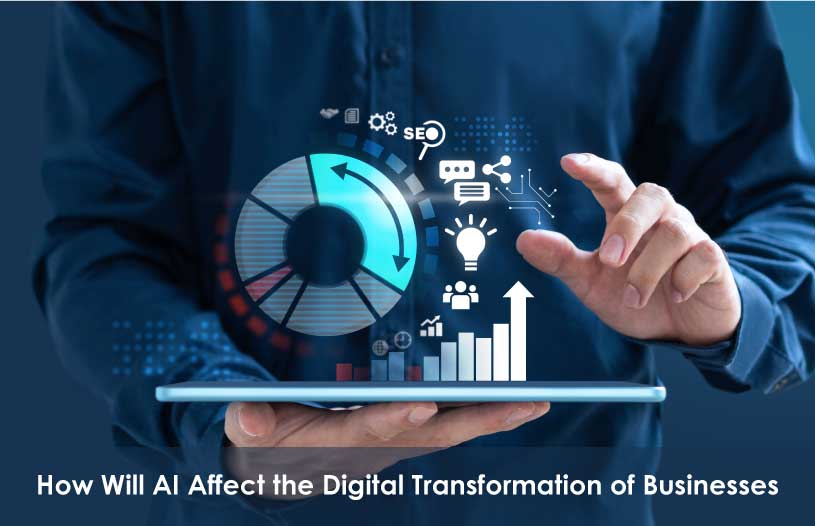Digital Transformation is one of the most critical drivers on how companies will continue to deliver value to their customers in a highly competitive and ever-changing business environment.
Artificial Intelligence (AI) has been recognized as one of the central enablers of digital transformation in several industries.
The transformation process seeks to leverage digital technologies to create or modify customer experiences and culture, and business processes, thus meeting customers’ changing needs and the market.
There are three important parameters on which AI has been proven advantageous.
- Improving Customer Experience- AI can play a crucial role in identifying the customers’ needs and implementing the right set of solutions. Understanding the buyer’s persona has been simpler. Service providers are using AI solutions to carve effective strategies to serve their customers better. AI is enabling service providers to create personalized solutions. Monitoring and responding to customers’ queries have become more proactive with the implementation of AI solutions in the business processes.
- Smart Analysis- To identify the process loopholes, businesses accumulate data and create useful insights on productivity and other key elements. A smart capitalization of data allows businesses to deploy tools that help businesses use advanced analytics for managing their customers, peers, and partners. Implementation of AI analytics not only saves financial expenses but also centralizes an organization’s efforts for leveraging the outcomes of a sustainable business in terms of revenues and productivity.
- Revenue-Generating- By eliminating process-related risks, managing resources with data-efficient tools, creating growth-oriented strategies, and enhancing efficiency, AI has contributed greatly to generating more revenues.
AI-Driven Automation for Customer Service
Digital transformation that incorporates AI is redefining and revolutionizing the end-user experience in countless ways for both B2B and B2C organizations. The new capabilities offered by AI-driven Conversational RPA for Customer Service can auto-resolve 65 percent of user requests and reduce issue resolution time by 90 percent—improving customer satisfaction scores by 80 percent. Sophisticated workflow automation integrates AI and RPA to automate customer workflows across product support, upgrades, troubleshooting, case management and more. The horizon for new revenue streams, cost-savings, and productivity is nearly unlimited.
Data Management
From improving the visualization of data to present it in a comprehensive format, AI has helped businesses to manage their data effectively. It has eased the integration of data in different mediums. The major concern with data accumulation and management used to be security which has been encountered by risk assessment tools backed with AI. AI-led digital transformation has transformed data preparation and validation platforms which simplified the integration of automation in modern-age businesses.
The advent of synthetic data is one of the most crucial business transformations led by AI. It has enabled companies to test and validate their products and AI development services with reduced efforts through advanced simulation of executable conditions and protocols.
From healthcare to education, technology solutions companies are helping organizations across the world to utilize this dynamic, transformative, and innovative business model.


